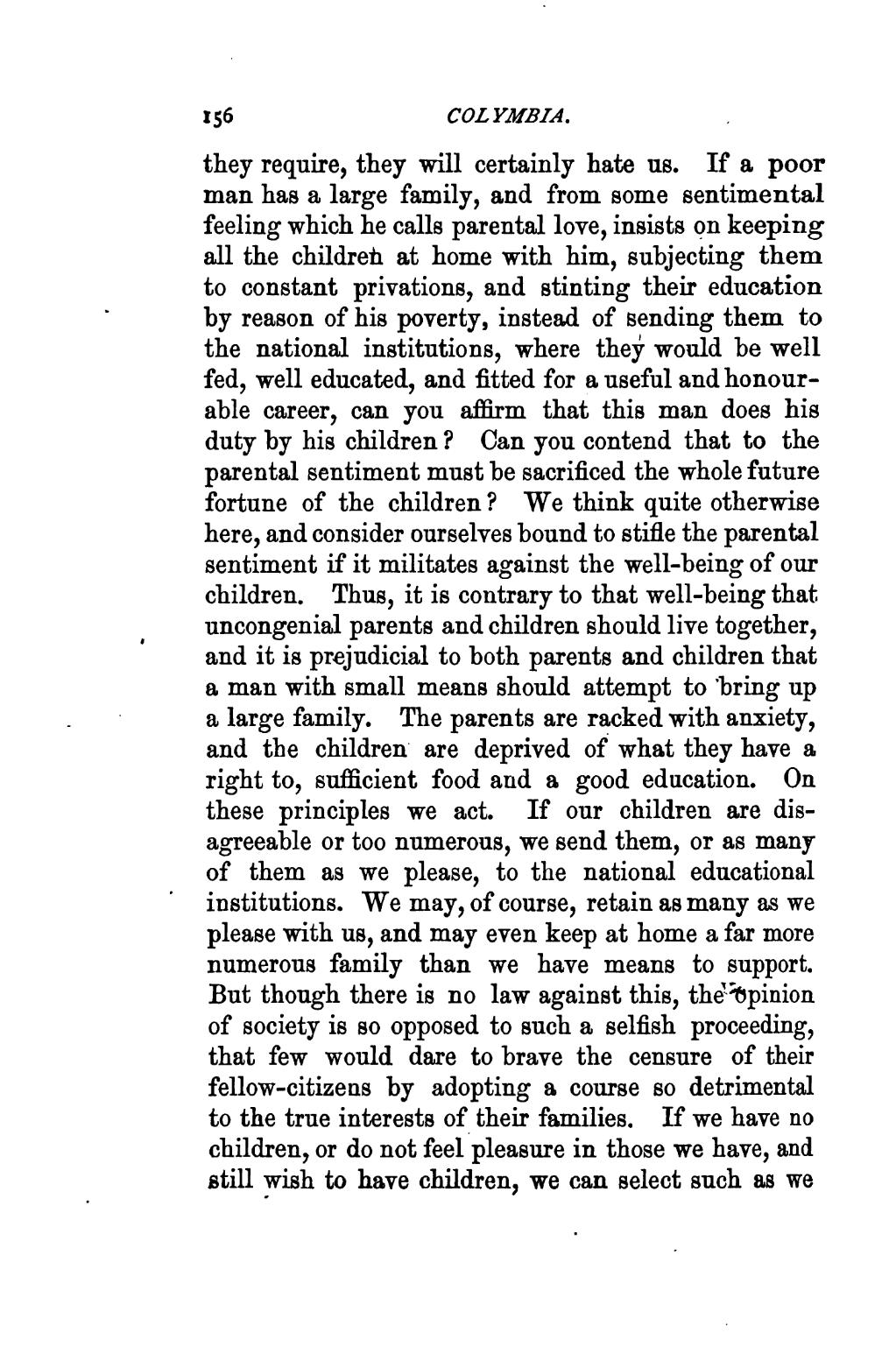they require, they will certainly hate us. If a poor man has a large family, and from some sentimental feeling which he calls parental love, insists on keeping all the children at home with him, subjecting them to constant privations, and stinting their education by reason of his poverty, instead of sending them to the national institutions, where they would be well fed, well educated, and fitted for a useful and honourable career, can you affirm that this man does his duty by his children? Can you contend that to the parental sentiment must be sacrificed the whole future fortune of the children? We think quite otherwise here, and consider ourselves bound to stifle the parental sentiment if it militates against the well-being of our children. Thus, it is contrary to that well-being that uncongenial parents and children should live together, and it is prejudicial to both parents and children that a man with small means should attempt to bring up a large family. The parents are racked with anxiety, and the children are deprived of what they have a right to, sufficient food and a good education. On these principles we act. If our children are disagreeable or too numerous, we send them, or as many of them as we please, to the national educational institutions. We may, of course, retain as many as we please with us, and may even keep at home a far more numerous family than we have means to support. But though there is no law against this, the opinion of society is so opposed to such a selfish proceeding, that few would dare to brave the censure of their fellow-citizens by adopting a course so detrimental to the true interests of their families. If we have no children, or do not feel pleasure in those we have, and still wish to have children, we can select such as we
